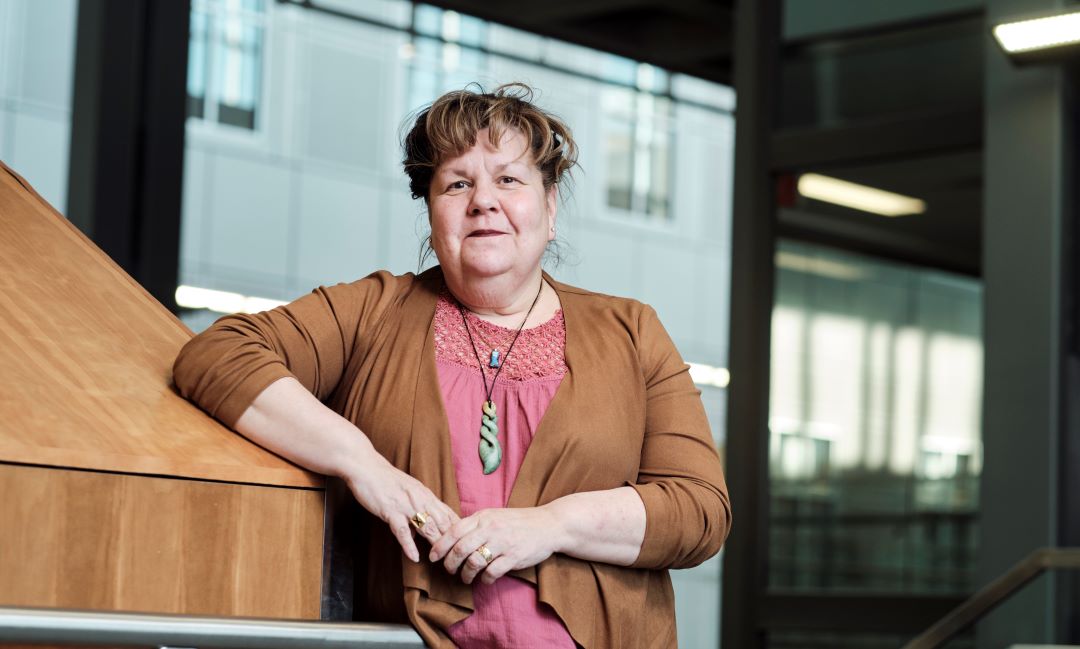
Indigenous-led research centre to address HIV among First Nations, Inuit and Métis
The rise in HIV and other sexually transmitted infections among Indigenous people in Saskatchewan and Manitoba is to be addressed by a new $2.9-million Indigenous-led research centre to close gaps in prevention and care.
By USASK RESEARCH PROFILE AND IMPACTFirst Nations researchers at the University of Saskatchewan (USask) have been awarded a $2.84-million federal grant over five years from the Canadian Institutes of Health Research to establish an Indigenous-led centre in the region. The location of the centre will be determined by the researchers and members of Indigenous communities.
“This centre will provide the much-needed infrastructure to leverage the Indigenous and non-Indigenous researchers, clinicians, government, and community to work together to address the rise in HIV,” said lead investigator Dr. Alexandra King (MD) of the USask College of Medicine.
Almost 80 per cent of new HIV cases in Saskatchewan—the province with the highest rates of HIV in Canada—are among indigenous people. With 2,091 cases reported between 1985 and 2016, the number of new HIV cases in Saskatchewan is almost triple the national average. There are also high rates of HIV transmission in Alberta, Manitoba, Ontario, Northwest Territories, and Nunavut.
Saskatchewan also has the highest rates of Hepatitis C—a viral infection that can cause liver damage—among First Nations people, who are estimated to be seven times more likely to be infected than the non-Indigenous population.
The new centre will employ the concept of Two-eyed Seeing: the careful bringing together of both Indigenous and Western worldviews and knowledge.
Indigenous and non-Indigenous health professionals and educators based in Saskatchewan and Manitoba will collaborate in new and innovative ways to address health inequities in the diagnosis and treatment of HIV, sexually-transmitted infections and blood-borne infections (STBBIs), and Hepatitis C among First Nations, Inuit and Métis. Prevention and harm reduction will also be key areas of focus.
”Saskatchewan and Manitoba have rich and diverse expertise in the areas of HIV, Hepatitis C and STBBIs,” said King, who holds the USask Cameco Chair in Indigenous Health and Wellness. “This centre will employ the best of Indigenous and Western capabilities. It will build approaches grounded in Indigenous philosophies and methodologies. For Indigenous people, place, history and social contexts matter and are integral to developing interventions that work.”
Each province will have a hub, with USask as the administrative core. Governance will be based on Indigenous governance practices, with a scientific oversight council spanning the region.
Basing research within Indigenous communities, the centre will develop ways to address inequalities in access to screening, treatment, care and social support. The centre will also improve awareness of HIV, Hepatitis C, and STBBIs in Indigenous communities, creating education programs that are culturally responsive and that utilize an “anti-oppressive approach.”
The centre will develop a network of Indigenous researchers on HIV, Hepatitis C and sexually-transmitted infections in Canada and internationally, and address a gap in Indigenous academic leadership at the regional level.
Read more about the other researchers on campus involved with this centre, visit the university's news site.
